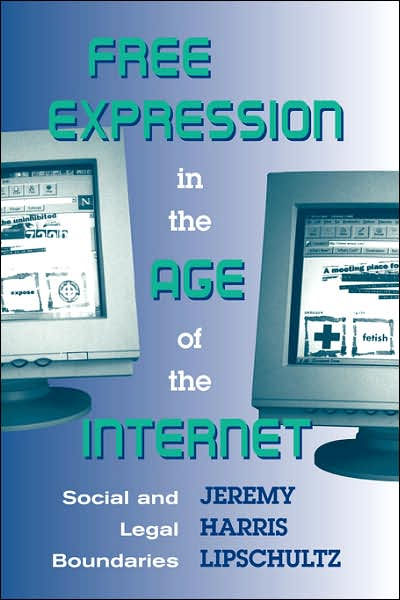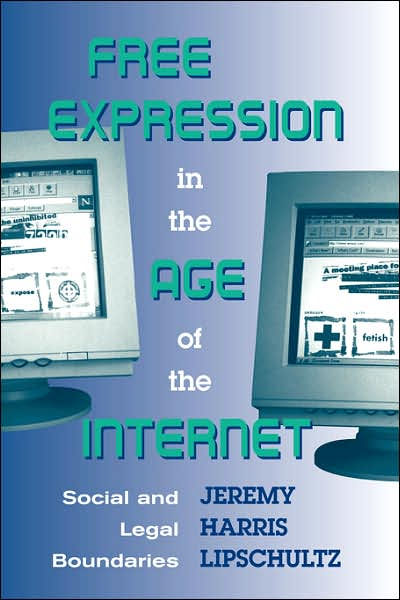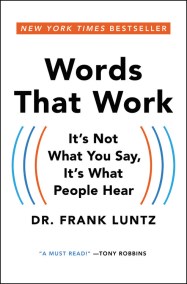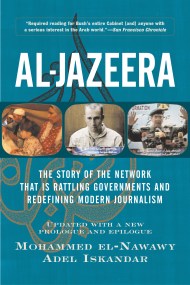Promotion
Use code BESTBOOKS24 for 25% off sitewide + free shipping over $35
By clicking “Accept,” you agree to the use of cookies and similar technologies on your device as set forth in our Cookie Policy and our Privacy Policy. Please note that certain cookies are essential for this website to function properly and do not require user consent to be deployed.
Free Expression in the Age of the Internet
Social and Legal Boundaries
Contributors
Formats and Prices
Price
$46.00Format
Format:
Trade Paperback $46.00This item is a preorder. Your payment method will be charged immediately, and the product is expected to ship on or around December 10, 1999. This date is subject to change due to shipping delays beyond our control.
Also available from:
In Free Expression in the Age of the Internet, Jeremy Lipschultz investigates the Internet and its potential for profound change, analyzing the use of its technology from social, political, and economic perspectives. Lipschultz provides new insights on traditional legal concepts such as marketplace of ideas, social responsibility, and public interest, arguing that from a communication theory perspective, free expression is constrained by social norms and conformity.Lipschultz explores social limits on free expression by first examining history of print and electronic media law and regulation. He utilizes the gatekeeping metaphor, the spiral of silence, and diffusion theory to explore current data on the Internet. He uses Reno v. ACLU (1997) as a case study of current First Amendment thinking. This book includes recent evidence, including samples of content from Internet gossip columnist Matt Drudge, and the investigation of President Clinton as it unfolded on the World Wide Web.The analysis is related to broader issues about Internet content, including commercial and other communication. The new technologies raise new questions about legal and social definitions of concepts such as privacy. Free expression is explored in this book under the umbrella of a global, commercial economy that places importance on legal rights such as copyright, even where those rights limit free flow of ideas.The Internet places free expression on two tracks. On the one hand, corporate players are developing cyberspace as a new mass media. On the other hand, the Internet is virtual space where individuals have the power to connect and communicate with others in ways never before seen. This groundbreaking text advancing new media scholarship uses the most current case studies from the Internet to show free expression in practice today. Lipshultz presents a relevant and efficacious social communication theory of free expression which critically examines the necessary factors involved in comprehensive policy analysis and enactment.
- On Sale
- Dec 10, 1999
- Page Count
- 352 pages
- Publisher
- Avalon Publishing
- ISBN-13
- 9780813391137
Newsletter Signup
By clicking ‘Sign Up,’ I acknowledge that I have read and agree to Hachette Book Group’s Privacy Policy and Terms of Use







